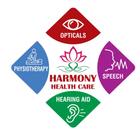Physiotherapy
View service
1. Rehabilitation after Injury or Surgery:
* Physiotherapy plays a crucial role in the recovery process after injuries (such as fractures, sprains, or muscle strains) or surgical procedures (like joint replacements or ligament repairs). It helps restore strength, flexibility, and range of motion to affected areas.
2. Pain Management:
* Physiotherapists use various techniques such as manual therapy, therapeutic exercises, and modalities (like ultrasound or electrical stimulation) to alleviate pain, whether chronic or acute. They also educate patients on pain management strategies.
3. Improving Mobility and Function:
* Physiotherapy focuses on improving physical function and mobility in individuals with movement limitations due to conditions such as arthritis, neurological disorders (e.g., stroke, Parkinson's disease), or musculoskeletal impairments.
4. Preventing Injury and Disability:
* Physiotherapists assess movement patterns, strength, and flexibility to identify potential risk factors for injuries. They develop personalized exercise programs and ergonomic advice to help prevent injuries and promote overall health.
5. Management of Chronic Conditions:
* For chronic conditions like chronic pain, osteoarthritis, or fibromyalgia, physiotherapy provides long-term management strategies to improve quality of life. This may include exercises to maintain strength and mobility, pain management techniques, and education on self-care.
6. Postural Correction and Ergonomics:
* Physiotherapists address postural imbalances and ergonomic issues that can lead to musculoskeletal problems. They provide advice on proper posture and ergonomic adjustments in workplace or daily activities to prevent pain and discomfort.
7. Sports Rehabilitation and Performance Enhancement:
* Athletes often utilize physiotherapy for sports-related injuries rehabilitation and to enhance their performance. Physiotherapists develop specialized exercise programs to improve strength, endurance, and flexibility tailored to the demands of the sport.
8. Cardiovascular and Respiratory Support:
* Physiotherapists assist patients recovering from cardiovascular events (such as heart attacks) or respiratory conditions (like chronic obstructive pulmonary disease - COPD) through breathing exercises, cardiovascular conditioning, and energy conservation techniques.
9. Health Promotion and Education:
* Physiotherapists educate individuals on maintaining a healthy lifestyle through regular exercise, proper body mechanics, and injury prevention strategies. They empower patients to take an active role in their own health and well-being.
10. Enhancing Overall Quality of Life:
* Ultimately, physiotherapy aims to enhance overall quality of life by optimizing physical function, reducing pain, and improving independence in daily activities. It promotes holistic health and well-being across different age groups and health conditions.
In summary, physiotherapy is essential for rehabilitation, pain management, improving mobility, preventing injuries, managing chronic conditions, optimizing sports performance, and promoting overall health and quality of life. It plays a critical role in multidisciplinary healthcare teams to address physical impairments and promote functional independence.
Price Available on Request











